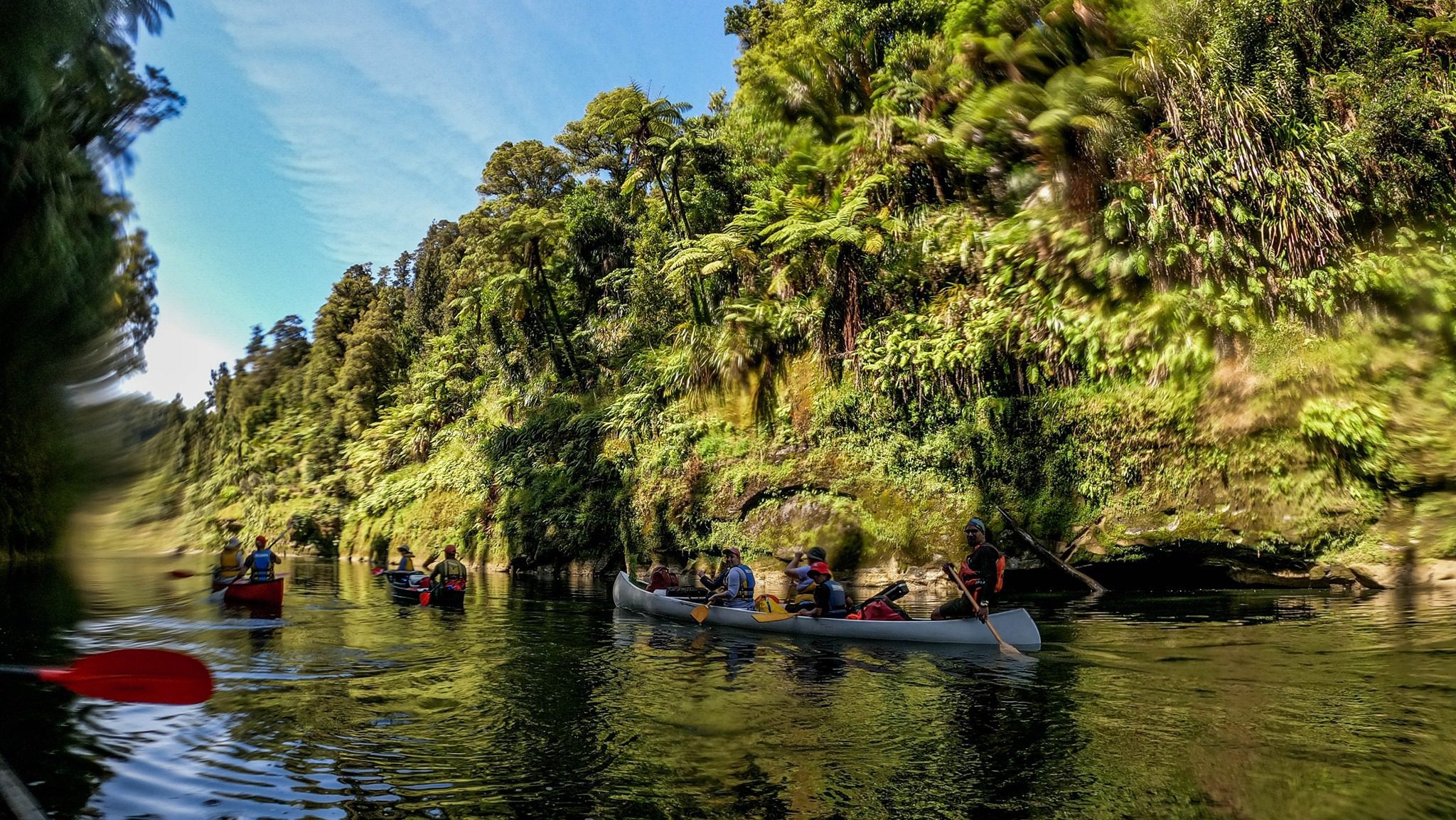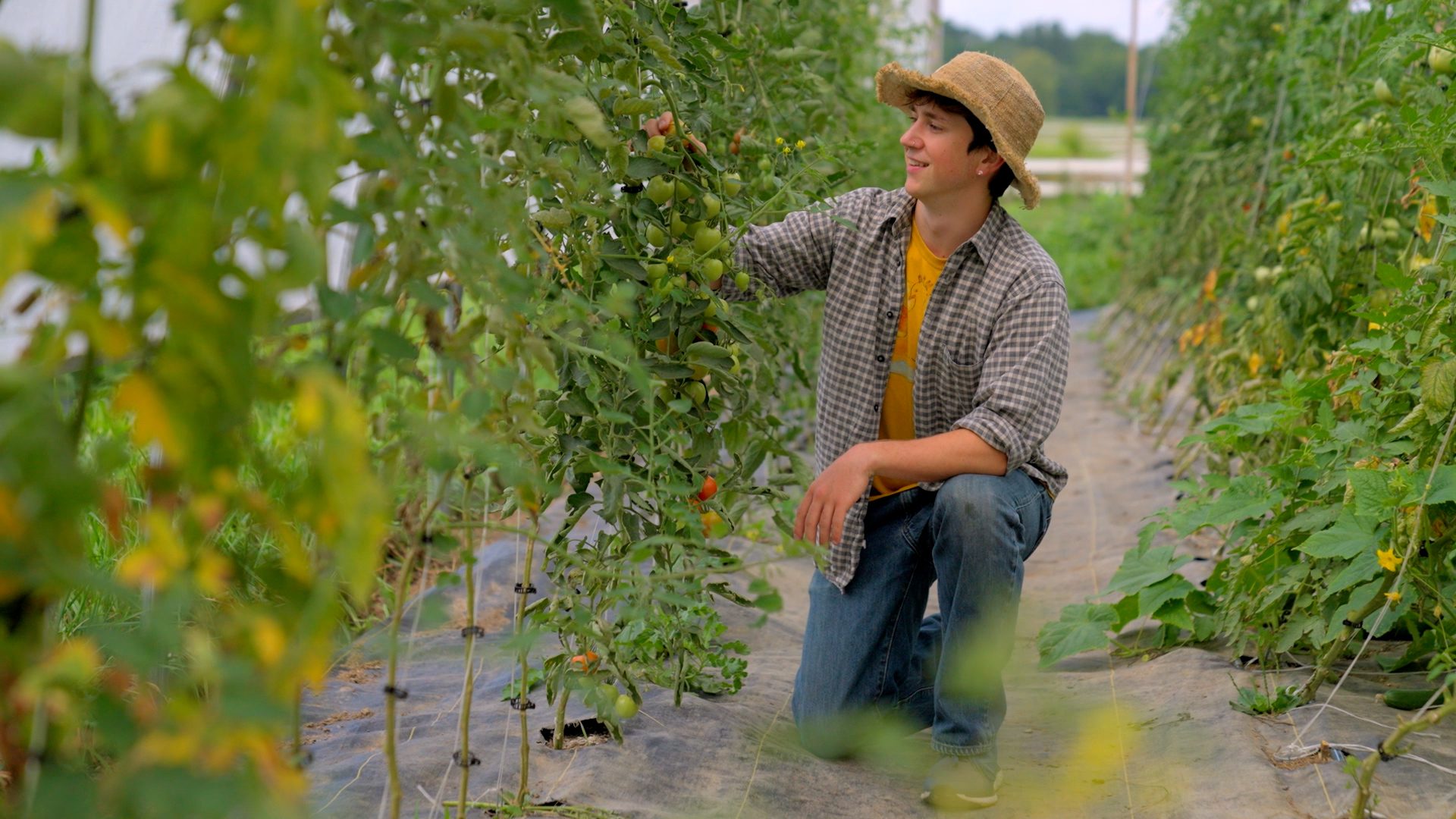
Environmental Sustainability
Environmental sustainability is an interdisciplinary field that integrates natural and social sciences, humanities, arts and education to address complex environmental problems. It attempts to balance human needs and ecological well-being, viewing humans as embedded within environmental systems.
As a student in the environmental sustainability program, you’ll learn how to understand the complex linkages between social and ecological systems and bring together knowledge from many different perspectives and disciplines. You’ll analyze environmental issues, collect data, connect the local and the global, apply various forms of theory, gain technical and applied skills and work collaboratively with others to find solutions to real-world environmental problems.
Start your adventure
Sign up for more information about Earlham College.
Addressing environmental problems through interdisciplinary research
A core sequence of multi-disciplinary courses will teach you to address environmental problems in ways that combine various academic fields and ways of thinking. You will also specialize in a specific track: Environmental Education, Natural Resource Conservation, Environmental Culture and Justice, or Climate Change.
All Environmental Sustainability majors complete a field experience internship or research project in an area of the student’s interest; a multi-disciplinary senior research paper; and a capstone applied group project that makes a positive practical contribution to the Earlham and/ or wider Richmond and Wayne County community.
Earlham is committed to sustainable living on campus and offers many opportunities for students to participate in environmental activities and initiatives. Learn more about our high sustainability ratings as a college and how we pursue sustainability at Earlham.

Outcomes
Recent graduates have pursued advanced degrees in forestry and natural resources, environmental policy and management, environmental and urban planning, energy, earth and earth resources, and philanthropy and non-profit management.
of work seekers who majored in Environmental Sustainability cross-divisional major between 2019-2023 were employed, pursuing graduate school, or volunteering within six months of graduation.

Careers
Top industries for environmental sustainability majors from 2019 to 2023 are higher education, sports & leisure, animal & wildlife, environmental services, farming and ranching, forestry, non-profits organizations, and K-12 education.

Off-campus study and research
From faculty research on sustainable cities in Europe to our popular semester program in New Zealand, environmental sustainability majors have a variety of options for studying around the world.
Frequently asked questions
There are several ways to get involved in co-curricular environmental activities and initiatives at Earlham, such as the Student Sustainability Corps, composting or the Sustainability Progress Committee.
In addition, you can learn more about the College’s comprehensive commitment to sustainability and high sustainability ratings and find a summary of various environment-related information and opportunities about sustainability at Earlham, including information about Earlham’s Center for Environmental Leadership, our outstanding Outdoor Education and Summer Wilderness programs and Miller Farm, where students practice sustainable agriculture on campus.
Environmental sustainability majors are encouraged to participate in off-campus study, faculty-student research experiences and internships. Recent majors have studied in New Zealand, done research in Iceland and other European countries and interned at the Joint US-China Collaboration on Clean Energy, Conserve National Forests, San Andres Education Programs and Cope Environmental Center.
Learn more about available programs via our Center for Global and Career Education.
If you’re interested in a career in environmental sustainability, this is the major for you. You will develop strong research and technical skills that make you an excellent candidate for both graduate school programs and careers in environmental fields.
Our faculty
Because environmental sustainability is an interdisciplinary major, our faculty come from diverse backgrounds and departments, including politics, biology, geology, outdoor education, social psychology, philosophy, environmental history, and English.


